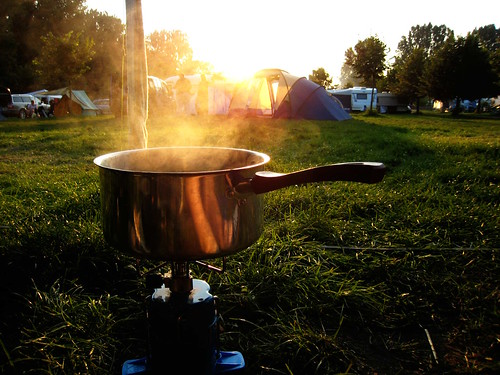Today’s guest lives off-the-grid, but is still digitally connected: Esther Emery!
Esther, her husband Nick, and their three children have been homesteading–building a homemade home and sustainable lifestyle for several years! Scroll down for photos.
For most of us, the idea of living in a portable home–a tent/house mashup (a yurt), using an outhouse, an outdoor water source, making fire everyday, raising chickens for eggs and meat, cooking meals on a wood burning stove, and using their own power sources, on an ongoing basis seems way out of our comfort zone.
With grit and purpose, Esther and her family are challenging normal American, consumerist, status quo and foregoing many comforts we taken for granted. Their entirely different lifestyle decision that takes living responsibly to a whole new level. It’s a story worth sharing.
Why have they done it?
How do they make it work?
Could it ever be a lifestyle for you? Listen to find out.

The Spark My Muse Project is where we create, share, and go about creating and communicating together. Thanks for not just mindlessly scarfing down what is here like a content-hungry “zombie consumer”. :)
- WANT to CONNECT? Enjoy The Spark Village Community!
It’s a virtual village (The Spark Village) where we can converse, connect, and encourage each other. It’s not for consumers. It’s for friends. FIND OUT MORE HERE.
- ENJOYING the SHOW?
Please, share it with others. Spread the Spark!
• If each listener contributes about a dollar per month, the Spark will get brighter!
Do you have a dollar to share?
Do that HERE.
Listen to the episode with Esther and think of something you’d like to ask her for our LIVE discussion, TUESDAY, October 6th!
Click HERE to learn more!
Podcast: Play in new window | Download (67.4MB) | Embed
Subscribe to Spark My Muse Apple Podcasts | Spotify | Email | TuneIn | RSS | Subscribe to Spark My Muse
Scroll to the end to see Esther’s photos!
Her WEBSITE: www.estheremery.com
Her FACE BOOK: http://www.facebook.com/estheremerywriter
Join Esther and me for a LIVE, interactive discussion at 8pm EST/GMT-4 on OCTOBER 6th (if the interwebs are cooperating, of course).
• Do you have any questions about a homesteading lifestyle? Ask Esther!
To join the discussion, click here.
If you missed it, you can watch a replay here, as a patron.
SHOWNOTES:
MINUTE
2:00
If a house and a tent had a baby: A Yurt.
How did Esther and her husband Nick decide to homestead three years ago?
3:30
How she can be off the grid and still have internet and digitally connected with the world.
The stuff of power (solar power, gas generator for power tools and a water pump, and wood fuel.)
5:00
How a homesteading lifestyle is not much like camping. (you may rough it but that doesn’t make you a homesteader)
The feeling of wanting escape can make you want to homestead.
6:00
Esther’s mom was a public figure in the back-to-the-land movement in the 1970s.
7:30
How her family brings in income for the things, how they make themselves and manage their idea of necessity to keep everyone together as much as possible.
8:30
What does she know now that she wishes she had known when she started?
9:30
On making a road so the UPS truck can deliver packages.
12:30
The emotional experience that you have when you solve your own problems.
14:00
Know your “why” before you homestead.
15:00
The fears she didn’t anticipate, almost quitting homesteading after a year, and hungry bears.
17:30
The thing about “preppers” who are waiting for the apocalypse.
18:30
Limiting their carbon footprint, raising food, and creating new feeding systems.
20:30
Interdependence with the natural world and with others.
21:30
Building a timber frame house.
22:20
Building community with people who live nearby.
23:00
Learning to garden, animal husbandry, can vegetables, the life-cycle of a cooking fire and cook using a wood burning stove, and hunt.
25:00
The potbelly stove and the rocket stove.
27:30
Integrative community with compassion-based lifestyle as opposed to a scarcity-based lifestyle.
28:00
What she learned about her own character.
Valuing her own independence when she couldn’t get water for cooking, bathing and watering the animals.
30:00
“Hope is a function of struggle.” Brene Brown
31:00
How her kids like living the homesteading lifestyle.
33:30
Her writing projects:
What Falls From the Sky
Wood Stove Cooking skills ebook.
The Homestead Wife
35:40
The homestead hobbies.
36:00
Her educational and faith background.
37:00
The story of her re-conversion to Christianity in her book than had been obscured in a pace of life.
Desire for justice in the world, the relation to the natural world, and perception of connection and authority of Jesus Christ and triangle that merged into an awakening.
39:20
Images of the homestead (included below).
The concept of permanence and not thinking about it as a fling someday, like the back-to-the-land movement of the 1970s.
Why it failed: Unreasonable expectations that aren’t as self-satisfying as you think they will be.
41:00
The romanticized notion of living a different lifestyle and not thinking about the emotional baggage that comes along with us where ever we go. How do we get the emotional stability we need when the major part of the adventure is over.
43:00 What her husband struggled with during the process of homesteading.
The concept of money and how it is useful to our imagine life without using it.
45:00
The rule about hanging out together.
PHOTO GALLERY:

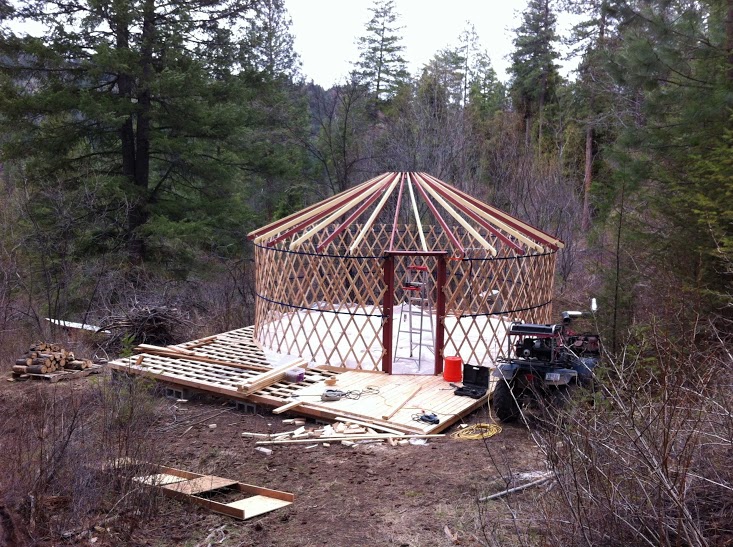
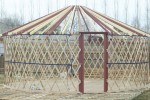
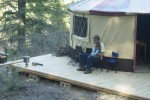




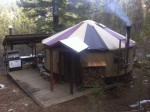
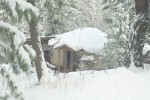



 Comedian
Comedian 